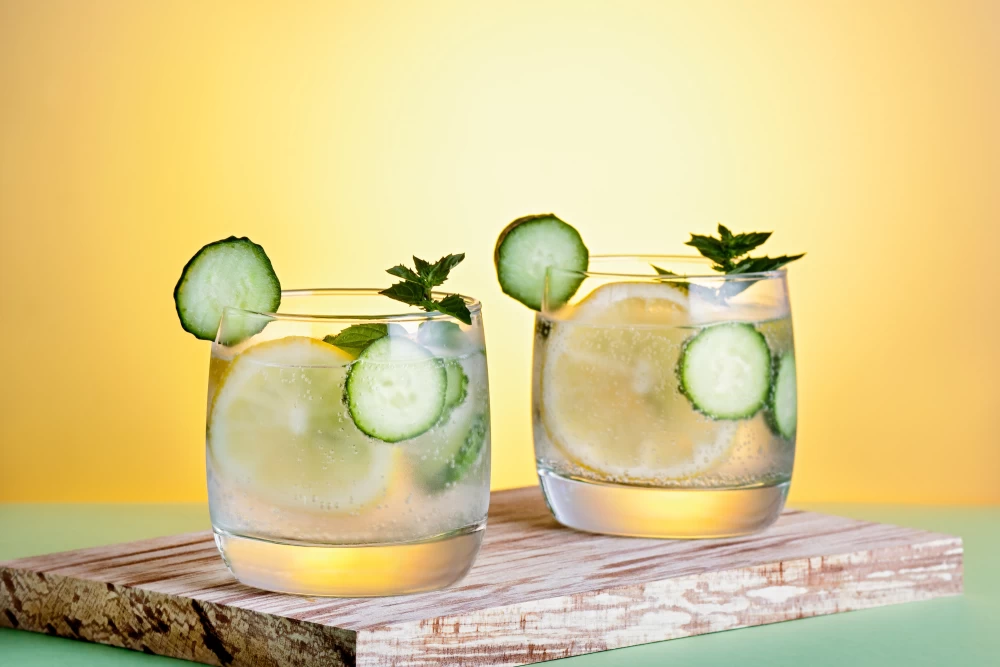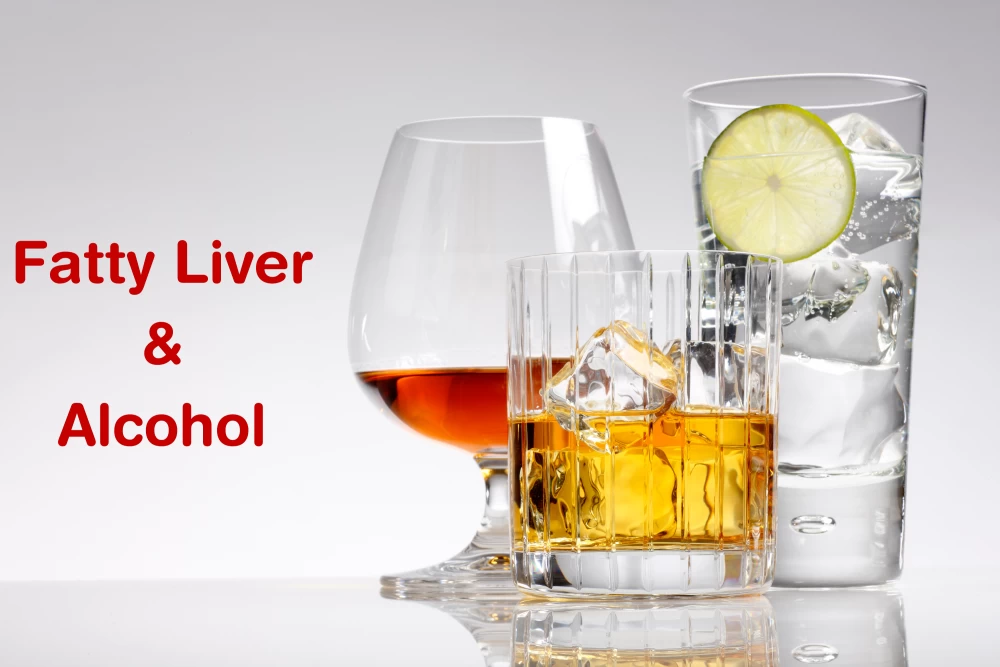
- 24th March 2023
Table of Contents
Causes of Fatty Liver Disease
Non-alcoholic fatty liver disease (NAFLD) is a condition where fat accumulates in the liver, leading to inflammation and scarring. Recent research has shown that consuming excessive amounts of sugary drinks, such as soft drinks and fruit juices, can increase the risk of developing NAFLD. These beverages contain fructose, which is metabolized by the liver and can lead to fat buildup. In addition to their high sugar content, non-alcoholic beverages are often low in nutrients and fiber. This means that they do not provide adequate nourishment for the body while still contributing calories. When consumed regularly over time, these excess calories can contribute to weight gain and insulin resistance - two factors associated with NAFLD. Although more research is needed to fully understand the link between non-alcoholic beverages and NAFLD, it is clear that reducing consumption of sugary drinks can have a positive impact on liver health. Replacing them with water or other healthy beverage options such as herbal tea or coconut water can also help improve overall nutrition status.
Effects of Non-Alcoholic Beverages
Non-alcoholic beverages, like sugary drinks and fruit juices, have been linked to an increased risk of developing fatty liver disease. This is because these drinks are often high in sugar and can lead to the buildup of fat in the liver. Fatty liver disease can be harmful and even progress to more serious conditions such as cirrhosis or liver cancer. In addition to sugary drinks, other non-alcoholic beverages such as energy drinks and sports drinks have also been linked to negative effects on the liver. These types of beverages contain high levels of caffeine and artificial sweeteners which may contribute to the development or progression of fatty liver disease. To lower the risk of developing fatty liver disease it is important to monitor your consumption of non-alcoholic beverages that are high in sugar or artificial ingredients. Instead, choose water or unsweetened tea as a healthier alternative that will not put your health at risk.
Risk Factors & Complications
Non-alcoholic beverages have become a popular choice for many individuals as a healthier alternative to alcoholic drinks. However, studies have shown that consuming excessive amounts of sugary drinks can lead to the development of fatty liver disease, which is a condition where fat accumulates in the liver cells. This can result in inflammation and damage to the liver, leading to serious health complications. Several risk factors contribute to the development of fatty liver disease, including obesity, insulin resistance, and high blood sugar levels. Consuming large amounts of non-alcoholic beverages with added sugars can also increase an individual's risk of developing this condition. Complications associated with fatty liver disease include cirrhosis (scarring) of the liver, increased risk for heart disease and stroke, and an increased likelihood of developing type 2 diabetes. To prevent or manage fatty liver disease, individuals should limit their intake of sugary drinks and consume more water or other non-sugary alternatives such as herbal tea or fruit-infused water. It is also essential to maintain a healthy weight through regular exercise and healthy eating habits while avoiding processed foods that contain high amounts of sugar. Early detection and treatment are crucial in managing this condition effectively.

Dietary Changes to Reduce Risk
Non-alcoholic fatty liver disease (NAFLD) is a condition that occurs when there is an excess accumulation of fat in the liver. Studies show that people who consume large amounts of non-alcoholic beverages, such as soda and sweetened fruit juices, are at a higher risk for developing NAFLD. To reduce the risk of this condition, it's recommended to make dietary changes. One way to decrease the risk of NAFLD is by cutting back on sugar and high fructose corn syrup. These ingredients can be found in many processed foods, including non-alcoholic drinks. Instead, opt for whole foods like fruits and vegetables which are naturally low in sugar. Another dietary change that can help reduce the risk of NAFLD is increasing fiber intake. Fiber helps regulate digestion and aids in removing toxins from the body. Foods rich in fiber include whole grains, nuts, seeds, and legumes. Overall, reducing consumption of non-alcoholic beverages high in sugar and increasing fiber intake through whole foods may help decrease the risk of developing non-alcoholic fatty liver disease.
Medical Treatment Options
Medical treatment options for fatty liver disease caused by the consumption of non-alcoholic beverages include lifestyle changes and medication. The first step in treating this condition is to eliminate or significantly reduce the intake of sugary drinks, such as soda and sweetened juices. Instead, patients are advised to consume water, herbal tea, or low-fat milk. In addition to dietary changes, exercise can also help improve liver function and reduce fat accumulation in the liver. Those with a sedentary lifestyle are encouraged to engage in moderate physical activity for at least 30 minutes per day. For severe cases of fatty liver disease caused by non-alcoholic beverages, medication may be prescribed. These medications aim to decrease inflammation and insulin resistance while increasing insulin sensitivity. However, it is important for patients to consult with their healthcare provider before taking any medication.
Conclusion
In conclusion, it is evident that non-alcoholic beverages play a significant role in the development and exacerbation of fatty liver disease. The high sugar content of these drinks contributes to weight gain and ultimately leads to the accumulation of fat in the liver. Furthermore, regular consumption of sugary beverages can cause insulin resistance, which is a major risk factor for developing fatty liver disease. It is crucial for individuals who are at risk or already have fatty liver disease to avoid or limit their intake of non-alcoholic beverages. Instead, they should opt for healthier alternatives such as water, unsweetened tea or coffee, and natural fruit juices with no added sugars. Additionally, reducing overall sugar intake and maintaining a healthy diet and lifestyle can significantly improve liver health. Overall, by understanding the link between non-alcoholic beverages and fatty liver disease, individuals can take steps towards preventing its onset or managing its symptoms effectively. It is essential to prioritize healthy choices when it comes to beverage consumption for optimal liver function and general well-being.














